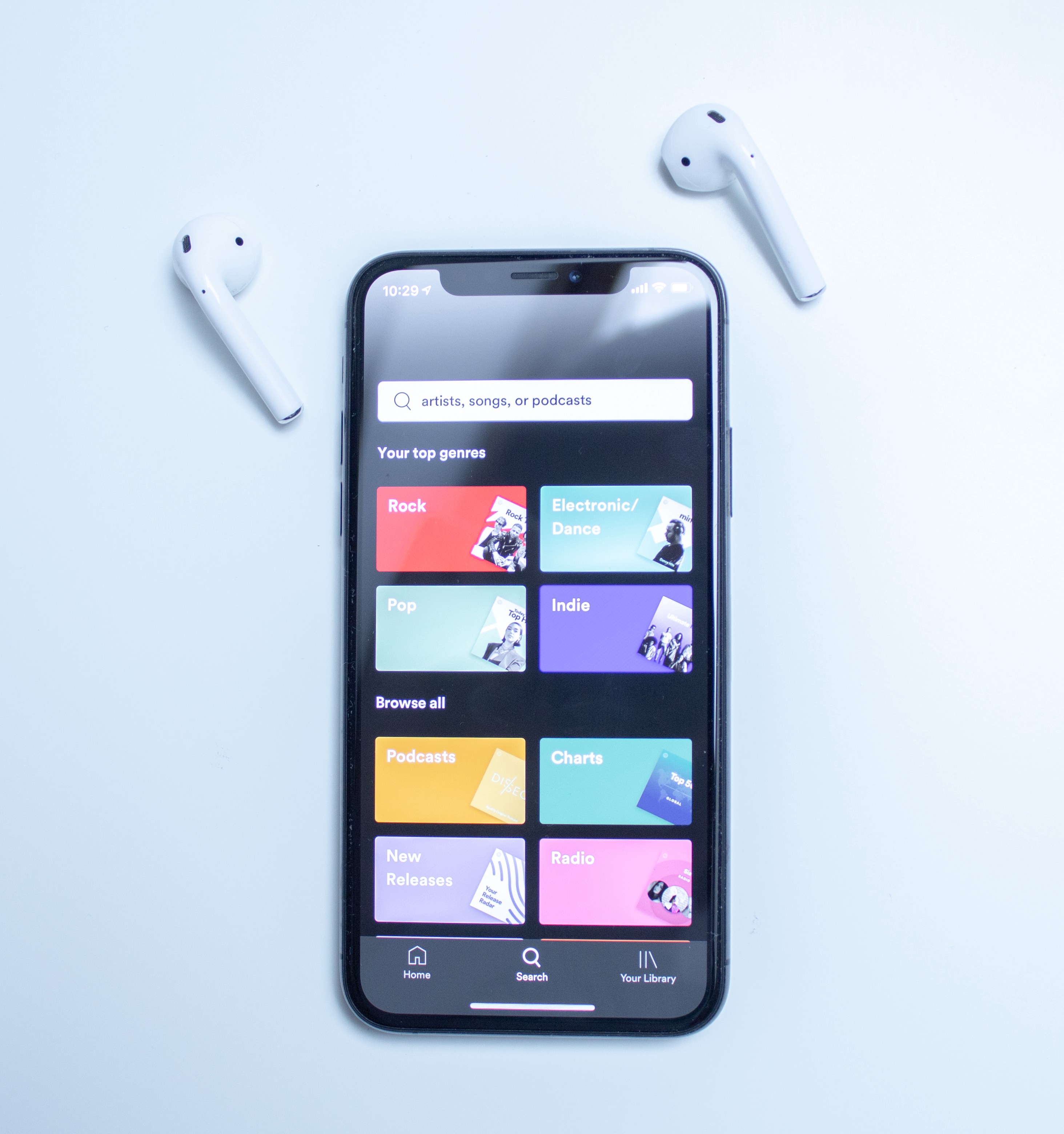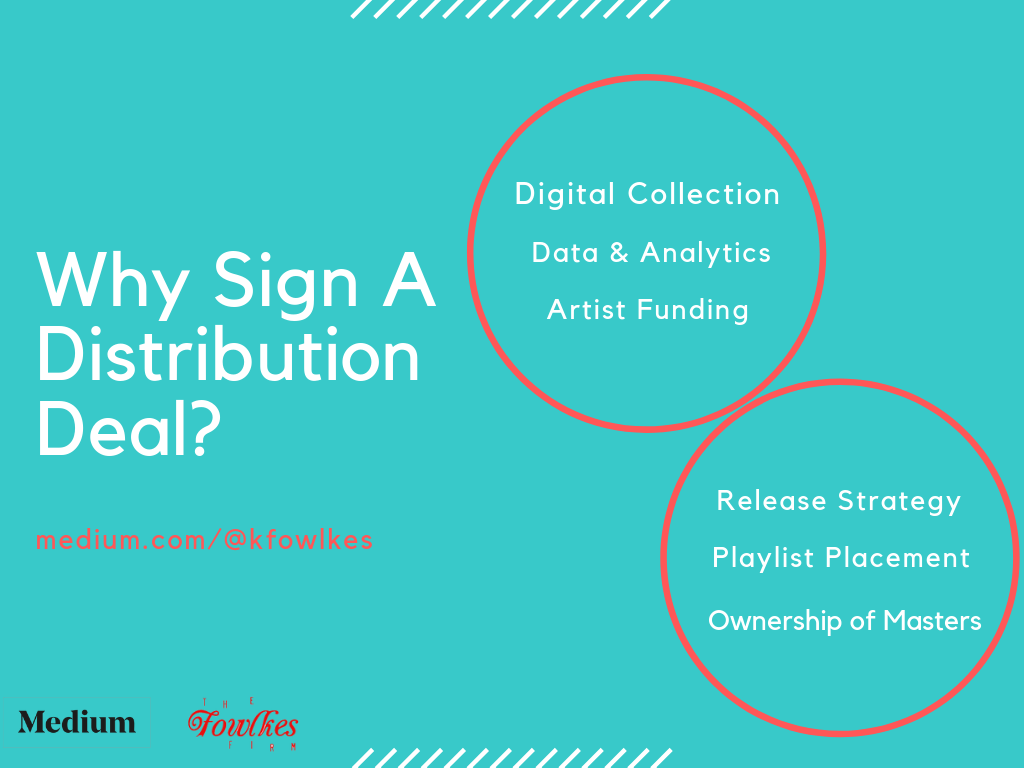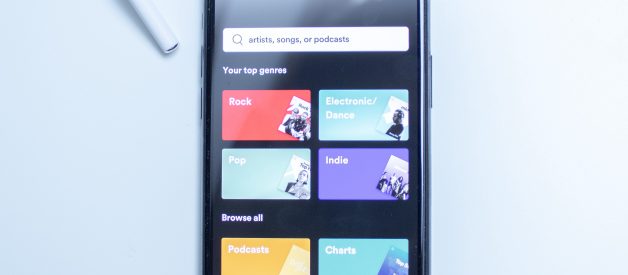A distribution deal lies in the unsteady middle ground between where independent and major label artists exist. It?s a space that’s becoming more popular over the past couple years for its flexibility, freedom, and ownership while often times still providing the luxury of an advance.
 Photo by Patrik Michalicka on Unsplash
Photo by Patrik Michalicka on Unsplash
The major label deal is becoming the source of scrutiny in 2019 as artists, managers and others in the business have more education and resources than ever before. A lot of people in the industry, understand the benefits of signing to a major label but others do not believe signing is necessary in this day in age. A major part of that is the shift from physical to digital distribution which has lowered the costs of getting the product into consumer?s hands. The upfront costs of making presentable and quality CD?s, cassettes and vinyl was and is fairly expensive especially when you compare it to the cost of digital distribution. But making the physical copies wasn?t your only expense or worry, how would an artist get there product to retailers like Best Buy, Sam Goody and others to get the product out especially if you were not signed to a major label? It was damn near impossible.
So back in the day, a distribution deal was a situation where the distributor would pay for the manufacturing costs of an album beginning with the pressing process, all the way through to the printing of the labels. Distribution companies were essentially the bridge between record labels and retail outlets, which included record stores and big-box retailers such as K-Mart and Target. Record Label and distribution companies were distinct entities. The record label signs the artist and provides marketing, advertising, and recording services. The distribution company signed deals with retail stores to sell the albums. Some distributors bought albums from record labels outright, while others distributed albums on consignment. That was the relationship.
As the record industry evolved with technology, the master shifted from physical to digital really altering the role of a distribution company. One of the first changes was shifting distribution efforts to iTunes as it was the number one digital retailer for the longest of time. As the music industry weathered the storm of illegal piracy and download, streaming soon came along to give the business what it needed and now distribution is accessible to literally anyone who has a little bit of money. For example, CD Baby offers digital distribution to all of the major platforms for $10 per song and $30 per album.
So in 2019 what does signing a distribution deal even mean?
Well, a new age music distribution deal can come from multiple parties in the industry. A true distribution platform like Tunecore, Create Music Group or Unitedmasters might offer you a deal. A distribution subsidiary of a record label like Sony?s The Orchard might offer distribution services for an artist or entity. Inside these deals comes with the obvious distribution of your music to all of the relevant streaming platforms but additional services as well.
The Orchard?s websites, for example, sells itself as ?As the industry?s leading independent distributor and label services company?. The company reaches digital and physical retailers worldwide. A distribution deal from Orchard might include marketing, advertising, soliciting sync licensing opportunities, video monetization, performance rights services, and other label services.
A distribution deal at Create Music Group would include some combination of digital collection, music distribution, data & analytics, release strategy, artist funding, content creation, and creative space.
A distribution deal at these companies might also come with an advance albeit not the same amount that a record label would give but still an advance. A $50,000 advance while still owning your masters, getting label-lite services and at worse a 50/50 royalty split is an extremely good deal and one that artists are seeking more.
A buddy from one of the big distributors told me earlier today, ?a good distribution company maintains good relationships with its artist/clients and accounts (Spotify/Apple, etc). As a result, they are able to make their clients/artist feel comfortable with their assets and provide their artist with opportunities when they are presented.?
His lasting message was simple, ?Any artist that wants to monetize content that they own should be using a distribution company.?
The role of the music distribution company has clearly shifted and now distributors are getting skin in the game operating as mini-record labels in a sense without owning masters or collecting an excessive royalty.
In a lot of ways, a great deal of the challenges in distributing an artist?s music successfully still exist. Just because an artist?s CD got into Best Buy does not mean it will sell. Likewise just because an artist?s catalog is available on Spotify does not mean people will stream. You have to have a release strategy, your music has to be good and you have to actively promote your product. Shelf-space has increased exponentially and while entertainment consumers continue to blossom and the music is more accessible, monetizing your music is still incredibly hard. Simply distributing the music is not enough and distributors know this and because of there connections inside the music industry, signing a deal with a distribution company can be extremely lucrative without compromising your long-term independence.
The industry seems to be feeling the effects of the new age distributor as major labels and these distribution companies are now seemingly going head to head for artists. Lee Parsons, founder/CEO of Ditto Music (distribution company) says ?I?m competing with major labels every day, The market is very much in the independent artist?s favor now, more than ever.? (via Billboard Biz)
In a lot of ways, a distribution platform is in the best position to poach new talent because they might have access to data & analytics on all platforms. They know whose music is streaming well in what places at what time, all of which are data points that are crucial to monetizing intellectual property.
Ideally, a distribution deal will include global distribution of your music, data & analytics to use for marketing and setting up tours, artist funding, and some other basic label services. For those who don?t like the major record label deal, distribution deals are tasteful. Still, you have to earn them and getting attention from a company for a distribution deal will take effort.
With that being said before signing a distribution deal with any company you really need to know what unique distribution services you?re actually getting. If there isn?t a budget, lite-label services, unique analytics tools or real playlist-ing capabilities, why are you giving up 10 to 50 percent?
Spotify and Apple Music are giving you analytics tools now.
Tunecore charges $9.99 per year per song. $29.99 for an album.
DistroKid charges $19.99 per year and lets you upload unlimited songs and albums. And! You keep all your royalties and they deliver to all platforms.
Cherie Hu and Troy Carter discussed this at Midem last year. Distribution is a weird space right now. Only a few companies get it.



